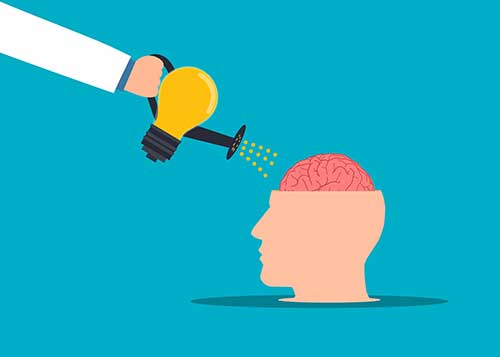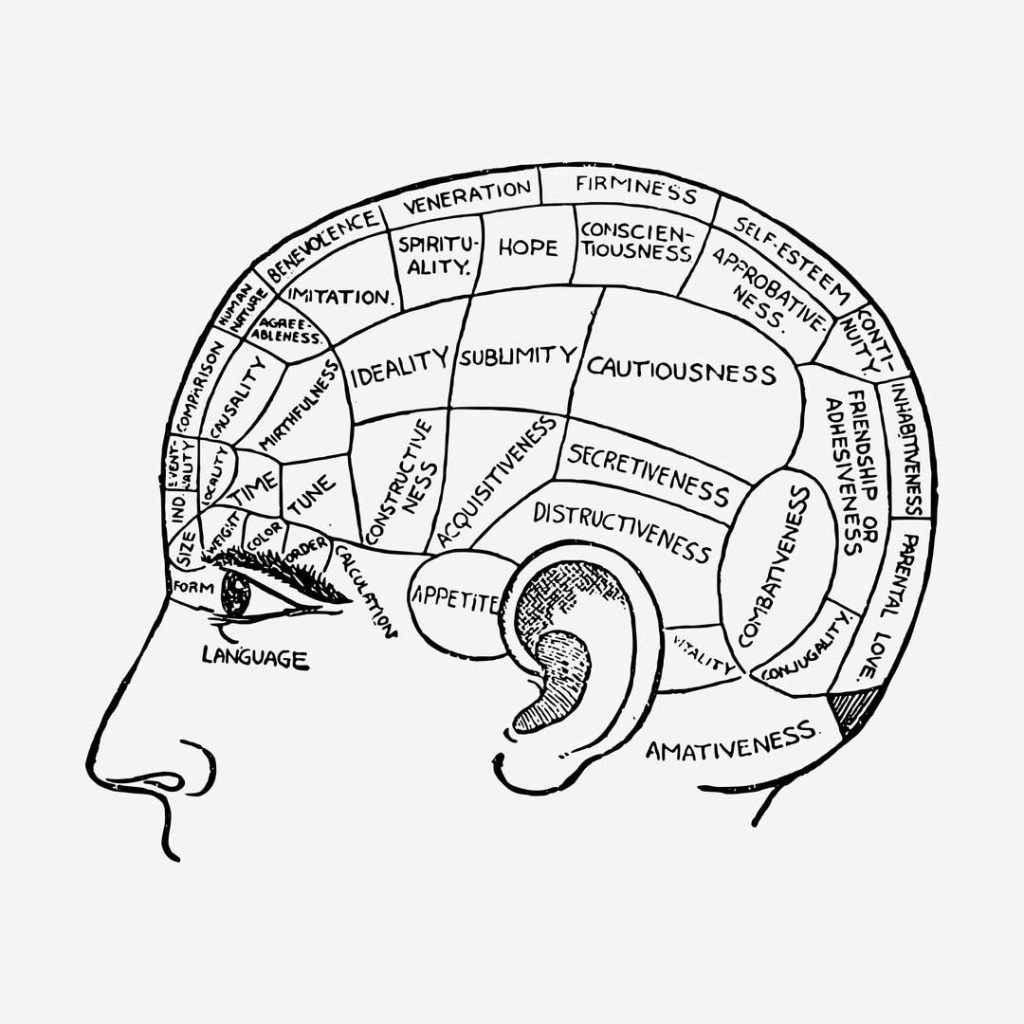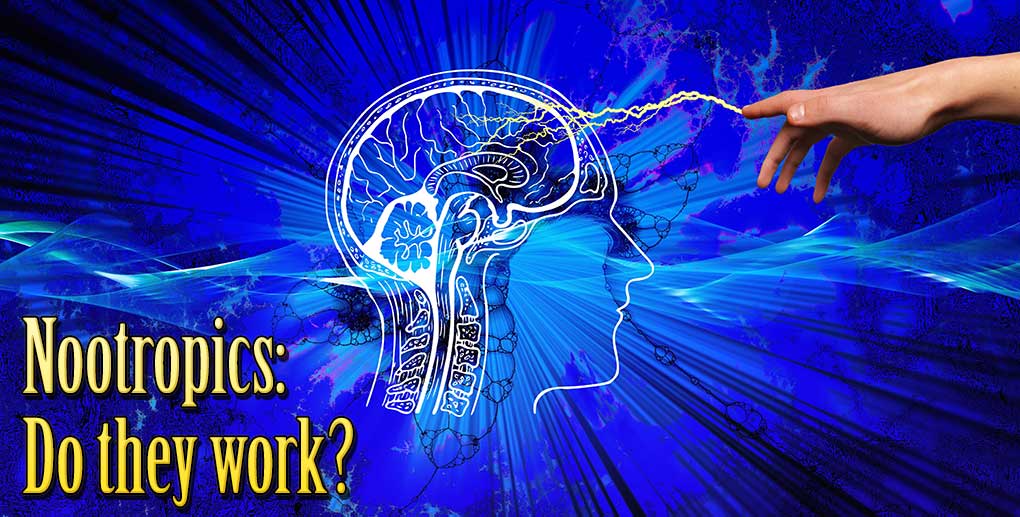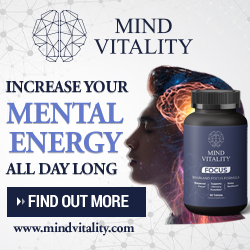Introduction
In recent years, nootropics supplements have attracted considerable attention among individuals seeking to improve their cognitive abilities. Often referred to as “smart drugs,” these substances are thought to improve memory, concentration, creativity, and overall brain function(1). As the demand for cognitive enhancement increases, so does the popularity of nootropics. However, questions remain as to whether these substances truly provide the promised benefits. In this article, the efficacy and potential risks of nootropics are analyzed in depth to ultimately determine whether they live up to their claims.
1. Understanding Nootropics
First, we will clarify what nootropics are, the different types, and how they can improve cognitive function.
1.1. What are nootropics and their different types?
Nootropics are substances or drugs that are designed to improve cognitive functions such as memory, concentration, creativity, and motivation. They can be divided into three main types: natural, synthetic, and prescription.
1.1.1 Natural nootropics
These are substances that occur naturally and can be found in certain foods or herbs. Examples include caffeine, omega-3 fatty acids, Ginkgo biloba, and Bacopa monnieri. Natural nootropics are often considered safe and have been used in traditional medicine for centuries.
| Bacopa Monnieri: | Ginkgo Biloba: | Mucuna Extract: | Pine Extract: |
| Research has demonstrated that the utilization of this Ayurvedic herb has the potential to enhance both learning abilities and the retention of memories. (2) | Research has been conducted to examine the impact of this substance on increasing blood flow in the brain, potentially aiding in the elimination of waste materials while improving memory and cognitive abilities. (3) | Increasing dopamine levels could potentially improve mood and motivation. (4) | Increased blood flow to the brain (5), resulting from its consumption, enhances the delivery of nutrients and potentially reduces cognitive issues like ‘brain fog’ and unclear thinking. Studies have demonstrated its ability to enhance mental clarity and concentration. (6) |
 |  |  |  |
| Ashwagandha: | Rhodiola Rosea: | Ginseng Korean: | Phosphatidylserine |
| By enhancing stress resilience, it aids in accomplishing more tasks throughout the day without being overwhelmed by the negative impact of stress. Additionally, it contributes to enhancing the quality of sleep. (7) | The Adaptogenic herb is renowned for its ability to decrease tiredness and relieve the effects of burnout. (8) | It helps combat tiredness and enhance energy levels. (9) | Studies have demonstrated that it reduces cortisol levels after physical activity, thereby enhancing the recovery process after strenuous workouts and enabling you to perform at your best in the workplace. (10) |
 |  |  |  |
1.1.2 Synthetic nootropics
These are man-made compounds specifically designed to improve cognitive function. Some of the well-known synthetic nootropics include piracetam, aniracetam, and phenylpiracetam. These compounds are often developed through scientific research and vary in efficacy and safety.
1.1.3 Prescription nootropics
These are medications prescribed by healthcare professionals to treat specific medical problems. For example, medications such as modafinil and Adderall, which are commonly used to treat narcolepsy and attention-deficit/hyperactivity disorder (ADHD), respectively, are sometimes used as nootropics because of their stimulant-like effects on cognitive function.
1.2. The science behind the effect of nootropics on cognitive functions
While the exact mechanisms of action of nootropics are not yet fully understood, researchers have identified several pathways through which they are thought to improve cognitive function
1.2.1 Increasing neurotransmitter activity
Some nootropics are thought to increase the production, release, or activity of neurotransmitters in the brain. Neurotransmitters such as dopamine, serotonin, and acetylcholine play critical roles in various cognitive processes.

1.2.2 Improvement of cerebral blood flow
Certain nootropics are thought to improve cerebral blood flow, ensuring an adequate supply of oxygen and nutrients. This increased blood flow may support the improvement of cognitive function.
1.2.3 Protection of brain cells
Nootropics may have neuroprotective properties, protecting brain cells from damage caused by oxidative stress or neurotoxicity. These protective effects may help maintain optimal brain health and function.
1.2.4 Enhancing Neuroplasticity
Neuroplasticity refers to the brain’s ability to adapt and reorganize. Some nootropics are believed to promote neuroplasticity and enable the brain to form new connections and improve cognitive abilities.
It is important to note that the effects of nootropics can vary depending on the individual, health condition, and the substance used. In addition, the safety and long-term effects of many nootropics are still being researched, so it is important to consult a physician before beginning a nootropic regimen.
2. Promised Benefits Of Nootropics Supplements
We will explore the promised benefits of nootropics supplements, including improved memory, focus, concentration, and overall brain health. In addition, we will discuss their potential positive effects on mental clarity, creativity, and productivity.
2.1. Improved memory, focus and concentration
One of the most important claims about nootropics is their ability to improve memory, focus, and concentration. Users often report improved memory and an increased ability to remember information. This benefit can be especially useful for students, professionals, and individuals looking to improve their cognitive performance. By supporting neural communication and increasing blood flow to the brain, nootropics are thought to improve memory formation and information recall, leading to an increase in cognitive ability.
2.2. Overall Brain Health
 | Nootropics are often associated with promoting overall brain health. These substances are thought to support neuroplasticity, the brain’s ability to adapt and change over time. By promoting neuroplasticity, nootropics may help form new neural connections, improve learning ability, and reduce age-related cognitive decline. In addition, some nootropics exhibit antioxidant and anti-inflammatory properties that may protect the brain from oxidative stress and neurodegenerative diseases. |
2.3. Positive effects on mental clarity, creativity, and productivity
Another promising benefit of nootropics is their potential positive impact on mental clarity, creativity, and productivity. Users often report improved mental clarity, enabling them to think more clearly and make decisions more effectively.
Although the promised benefits of nootropics are intriguing, these claims should be taken with a grain of salt. The effects of these substances may vary from person to person, and scientific research on their long-term effects and safety is still limited.
As mentioned earlier, consult with healthcare professionals and follow recommended guidelines when considering nootropics as part of a strategy to improve cognitive performance.

In addition, a holistic approach to brain health, including adequate sleep, a balanced diet, regular exercise, and mental stimulation, is critical to optimizing cognitive function and overall well-being.
3. Scientific evidence and research
Numerous scientific studies have been conducted to understand the efficacy and safety of these substances. We will present an overview of the scientific studies that have been conducted on various nootropic substances, discuss the limitations and challenges of conducting research on nootropics due to ethical considerations, and highlight notable findings and evidence of the efficacy of certain nootropics.
3.1. Overview of scientific studies on nootropic supplements
Scientists and researchers have conducted a wide range of studies to investigate the effects of various nootropic substances on cognitive function. These studies have examined the potential benefits of substances such as caffeine, omega-3 fatty acids, Ginkgo biloba, and many others. Researchers have used a variety of methods, including randomized controlled trials, double-blind studies, and meta-analyses, to evaluate the effects of these substances on memory, attention, concentration, and overall cognitive performance.
3.2. Limitations and challenges of research on nootropics due to ethical considerations
Conducting research on nootropics presents several ethical challenges. First, researchers must ensure the safety of participants, as some compounds may have unknown side effects or interactions with other medications.
In addition, the long-term effects of certain nootropics are still unclear, making it difficult to accurately assess their potential risks. In addition, ethical considerations arise when studying substances that are not approved for medical use, as researchers must weigh the potential benefits against the potential harm to participants.
3.3. Notable Findings and evidence for the efficacy of certain nootropics
Although research on nootropics is ongoing, several substances have shown promising results in improving cognitive function. For example, studies have consistently shown that caffeine can improve attention, alertness, and cognitive performance. Omega-3 fatty acids, found in fish oil, have also shown positive effects on memory and learning ability. (11)
Ginkgo biloba has been associated with improved memory and overall cognitive function in some studies (12). In addition, certain racetams such as piracetam have shown the potential to improve memory and cognitive performance in individuals with cognitive impairment.
Scientific research on nootropic substances has provided valuable insight into their potential effects on cognitive function. Although there are limitations and challenges to research on nootropics due to ethical considerations, notable results have demonstrated the efficacy of certain substances.
It is important to note that responses to nootropics may vary from individual to individual and that further research is needed to better understand their long-term effects and potential risks. Nonetheless, these studies contribute to the growing body of scientific evidence that helps in making informed decisions about the use of nootropic substances to improve cognitive abilities.
4. User Experiences and Reviews
When it comes to nootropics, the experiences and testimonials of people who have used these cognitive-enhancing supplements can provide valuable insight. We will explore the various user experiences and present a balanced view by including both positive and negative feedback. In addition, we will discuss the possible placebo effects and subjective experiences associated with nootropics.
4.1 Experiences and Testimonials of Individuals Who Have Used Nootropics
One of the best ways to understand the effects of nootropics is to hear directly from those who have used them. Many users of nootropics supplements have reported positive experiences, claiming that these supplements have improved their concentration, memory, and overall cognitive function. For example, individuals have reported that nootropics have helped them focus better at work or study, resulting in increased productivity and efficiency. Some have even reported that they have improved their creativity and problem-solving skills.
On the other hand, it is important to consider negative feedback as well. While experiences vary from person to person, some users have reported little to no noticeable effects after using nootropics. Others reported side effects such as headaches, insomnia, or increased anxiety. It is important to consider these negative experiences to get a comprehensive view of the potential consequences of taking nootropics.
4.2 Placebo Effects and Subjective Experiences
The experiences of nootropic users can be influenced by placebo effects. The placebo effect is a psychological in which individuals perceive an improvement in their condition, even if the treatment itself is not effective. When it comes to nootropics, it is possible that some users experience cognitive enhancements simply because they believe in the benefits, rather than the actual effects of the substances.
It is also crucial to acknowledge that experiences with nootropics can vary from person to person. Individual differences, expectations, and the specific type of nootropic can all play a role in how the effects are perceived. What may work for one individual may not have the same outcome for another. It is therefore vital to approach user experiences with an open mind and take into account the possibility of subjective interpretations.
In summary, examining the experiences and testimonies of individuals who have used nootropics provides valuable insight into their effects. By including both positive and negative feedback, a balanced view can be presented. It is also important to consider the possible placebo effects and subjective experiences associated with nootropics. Ultimately, understanding the different experiences can help individuals make informed decisions about whether to include these supplements in their routine for improving cognitive abilities.
5. Safety and Side Effects: Navigating the World of Nootropics
It is critical to address the safety concerns and potential side effects of nootropics. We will attempt to highlight the safety issues associated with nootropics, potential drug interactions, known side effects, and the importance of consulting a physician before starting to take nootropics regularly.
5.1 Safety Concerns and Medication Interactions
One of the foremost concerns about nootropics is the possibility of drug interactions. It is critical to recognize that nootropics may affect how drugs are processed in the body, potentially resulting in unpleasant reactions or decreased effectiveness. As a result, it is critical to get the advice of a healthcare expert, such as a doctor or pharmacist, particularly if you are currently taking drugs.
Racetams, for example, may interact with anticoagulant drugs, raising the risk of bleeding. Furthermore, some nootropics might cause changes in blood pressure or heart rate, which can be dangerous for people who have cardiovascular disease or are taking drugs to treat it. A healthcare professional may provide tailored advice based on your unique health profile and medications, assuring your safety.
5.2 Known Side Effects and Risks
While nootropics are generally regarded as safe when taken properly, it is critical to be aware of the potential side effects and risks related to specific substances. Headaches, gastrointestinal difficulties, sleep disturbances, and mood changes are some of the most typical negative effects observed with some nootropics. These adverse effects are usually minor and short-lived, although they can vary based on individual sensitivity and dosage.
Certain nootropics, such as modafinil, may be associated with an increased risk of side effects, such as skin rashes, cardiovascular difficulties, and psychiatric symptoms. Before using any nootropic, it is critical to fully research and understand the potential risks.
Start with the lowest dose and gradually raise to the suggested dose while carefully observing how your body responds. If you come across any negative side effects, you should stop using the supplement and seek medical advice.
5.3 Consulting a Healthcare Professional
Before beginning any nootropic program, it is critical to consult with a healthcare practitioner. To provide individualized advice and guidance, a healthcare professional can analyze your medical history, current prescriptions, and particular health needs. They can advise you on the best nootropics for you based on probable interactions, pre-existing conditions, and known negative effects.
Remember that self-diagnosis and self-medication can be dangerous, especially with chemicals that impact brain function. The experience of a healthcare professional can assist in assuring your safety and maximizing the potential benefits of nootropics.
While nootropics show promise as cognitive enhancers, they must be used with caution. Concerns about safety, possible medicine interactions, and known adverse effects should all be taken into account. It is important to consult a healthcare practitioner before beginning any nootropic regimen to ensure your safety and reduce risks. By being proactive, you will be able to safely traverse the world of nootropics and make informed choices about improving your cognitive abilities.
Conclusion
Nootropics, also known as “smart drugs” or “cognitive enhancers,” have gained attention because of their potential benefits to brain health and cognitive function. Some common claims associated with nootropics include improved memory, focus, concentration, mental clarity, creativity, and productivity.
Nootropics supplements are thought to improve memory by supporting neural communication and promoting blood flow to the brain. They are also thought to promote overall brain health by supporting neuroplasticity and protecting against oxidative stress and neurodegenerative diseases. In addition, nootropics can improve mental clarity, stimulate creativity, and increase productivity by improving concentration and cognitive function.
However, these claims should be taken with caution because the effects of nootropics can vary and long-term research on their safety is limited. Consultation with healthcare professionals and a holistic approach to brain health are critical to optimizing cognitive function and overall well-being.
Our recommendation is to start with natural nootropics supplements and minimal dosage. You can observe if there are any side effects after some time. You can also see if there are any positive effects on your mental concentration, creativity, and mental energy.
Frequently Asked Questions
References
- National Libray of Medicine Establishing Natural Nootropics: Recent Molecular Enhancement Influenced by Natural Nootropic
- Chronic effects of Brahmi (Bacopa monnieri) on human memory (Steven Roodenrys, Dianne Booth, Sonia Bulzomi, Andrew Phipps, Caroline Micallef, Jaclyn Smoker)
- Neuroprotective effects of Ginkgo biloba extract (B Ahlemeyer, J Krieglstein)
- Mucuna pruriens improves male fertility by its action on the hypothalamus-pituitary-gonadal axis (Kamla Kant Shukla, Abbas Ali Mahdi, Mohammad Kaleem Ahmad, Satya Narain Shankhwar, Singh Rajender, Shyam Pyari Jaiswar)
- A review of the French maritime pine bark extract (Pycnogenol), a herbal medication with a diverse clinical pharmacology (P Rohdewald)
- A review of the French maritime pine bark extract (Pycnogenol), a herbal medication with a diverse clinical pharmacology
- Adaptogenic and Anxiolytic Effects of Ashwagandha Root Extract in Healthy Adults: A Double-blind, Randomized, Placebo-controlled Clinical Study (Jaysing Salve, Sucheta Patel, Khokan Debnath, Deepak Langade)
- Multicenter, open-label, exploratory clinical trial with Rhodiola rosea extract in patients suffering from burnout symptoms. (Siegfried Kasper, Angelika Diene)
- Efficacy of Korean red ginseng (Panax ginseng) for middle-aged and moderate-level chronic fatigue patients: A randomized, double-blind, placebo-controlled trial (Won-Suk Sung, Ha-Ra Kang, Chan-Yung Jung, Seong-Sik Park, Seung-Ho Lee, Eun-Jung Kim)
- The effects of phosphatidylserine on endocrine response to moderate-intensity exercise (Michael A Starks, Stacy L Starks, Michael Kingsley, Martin Purpura, Ralf Jäger)
- Healthline: How Omega-3 Fish Oil Affects Your Brain and Mental Health
- WebMD: Ginkgo Biloba





